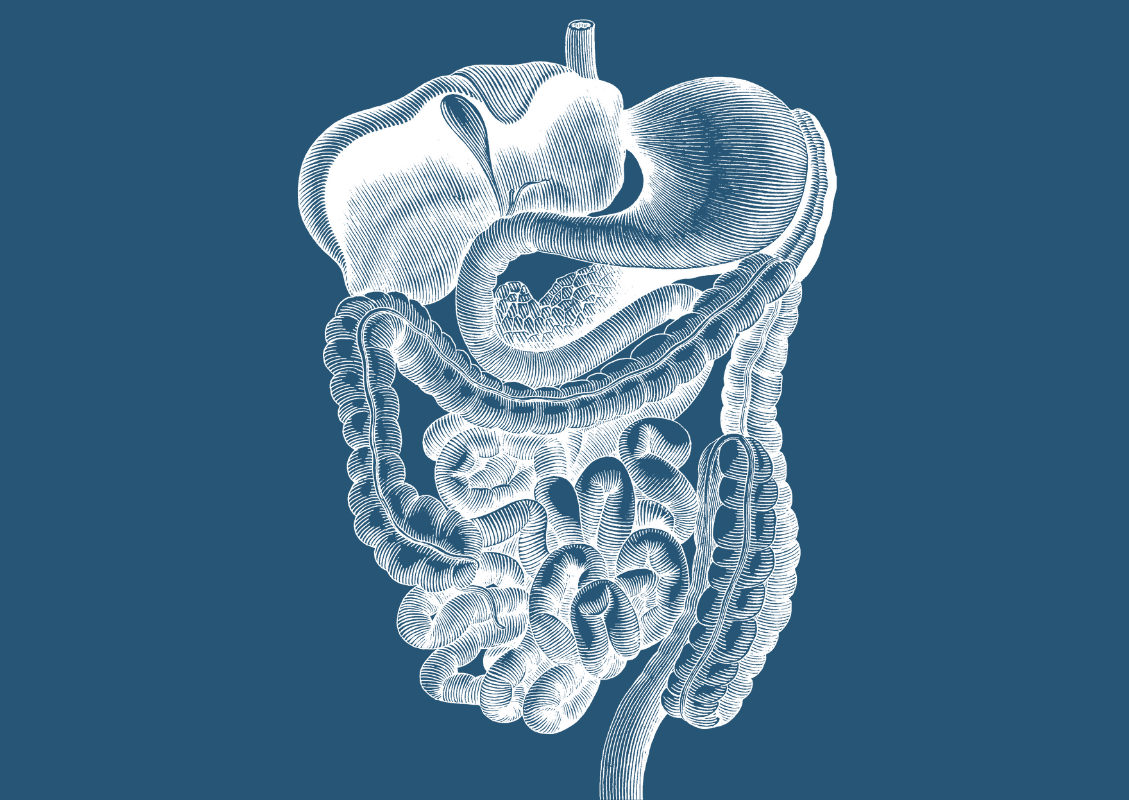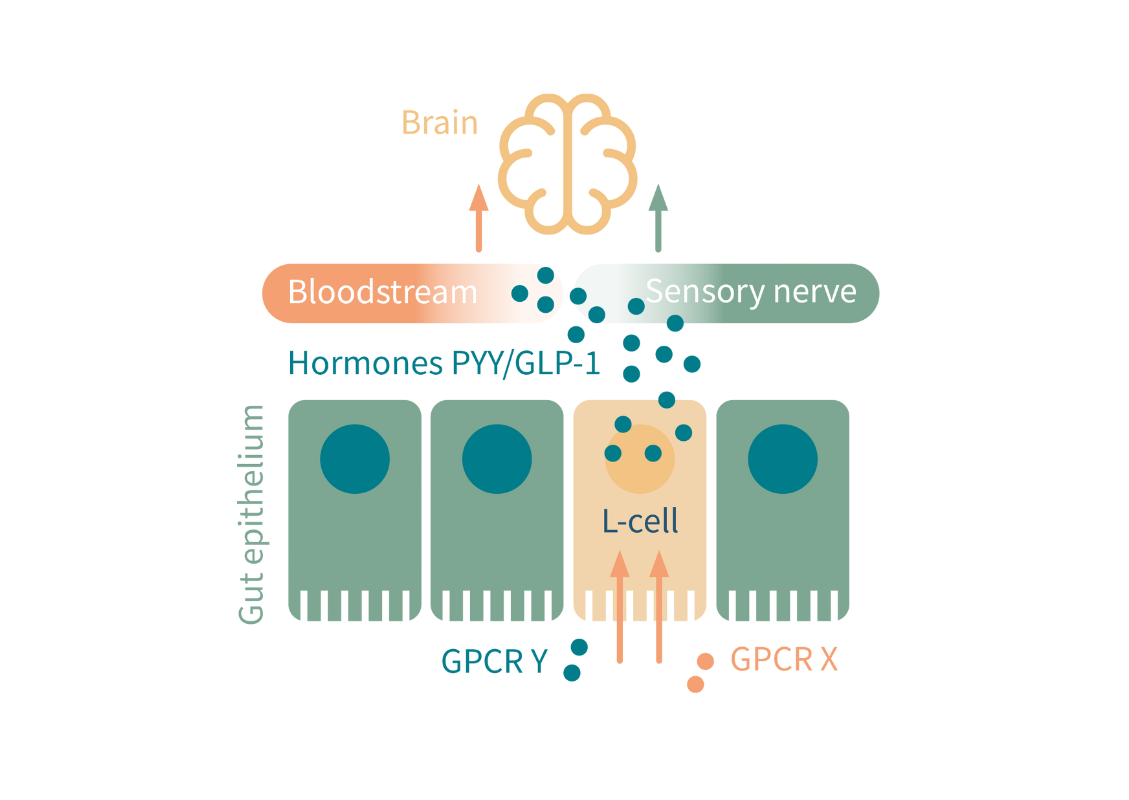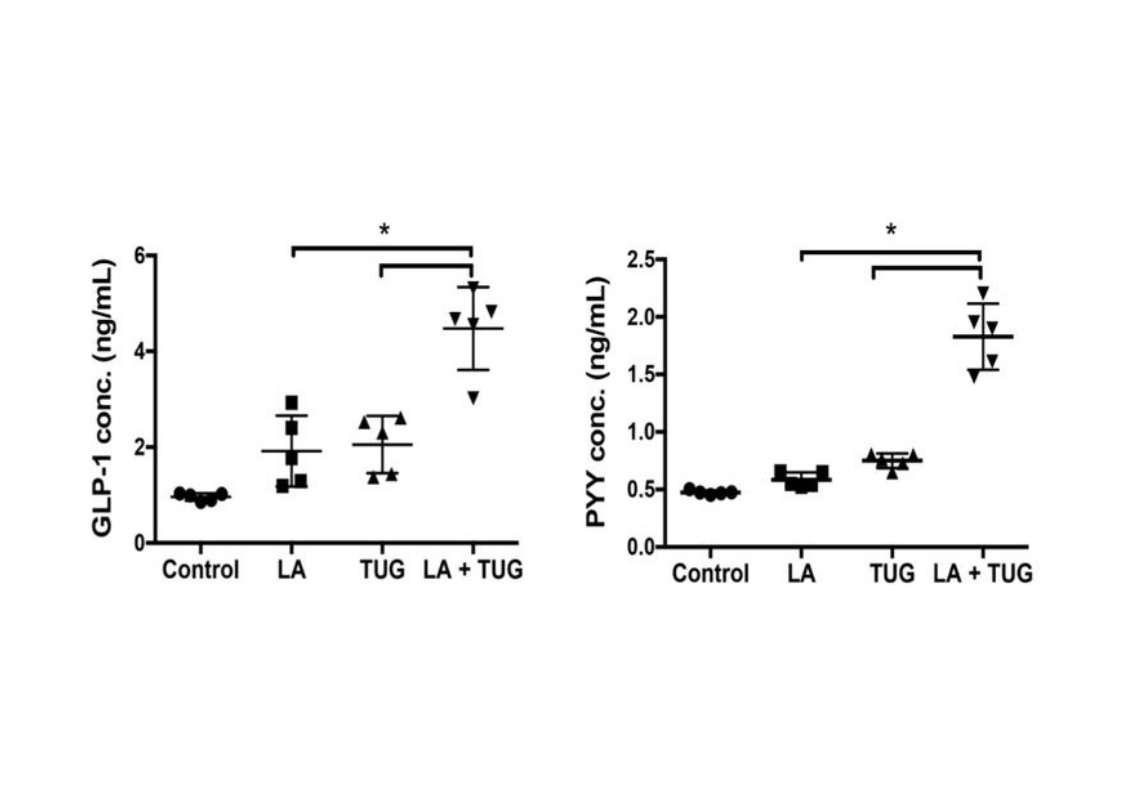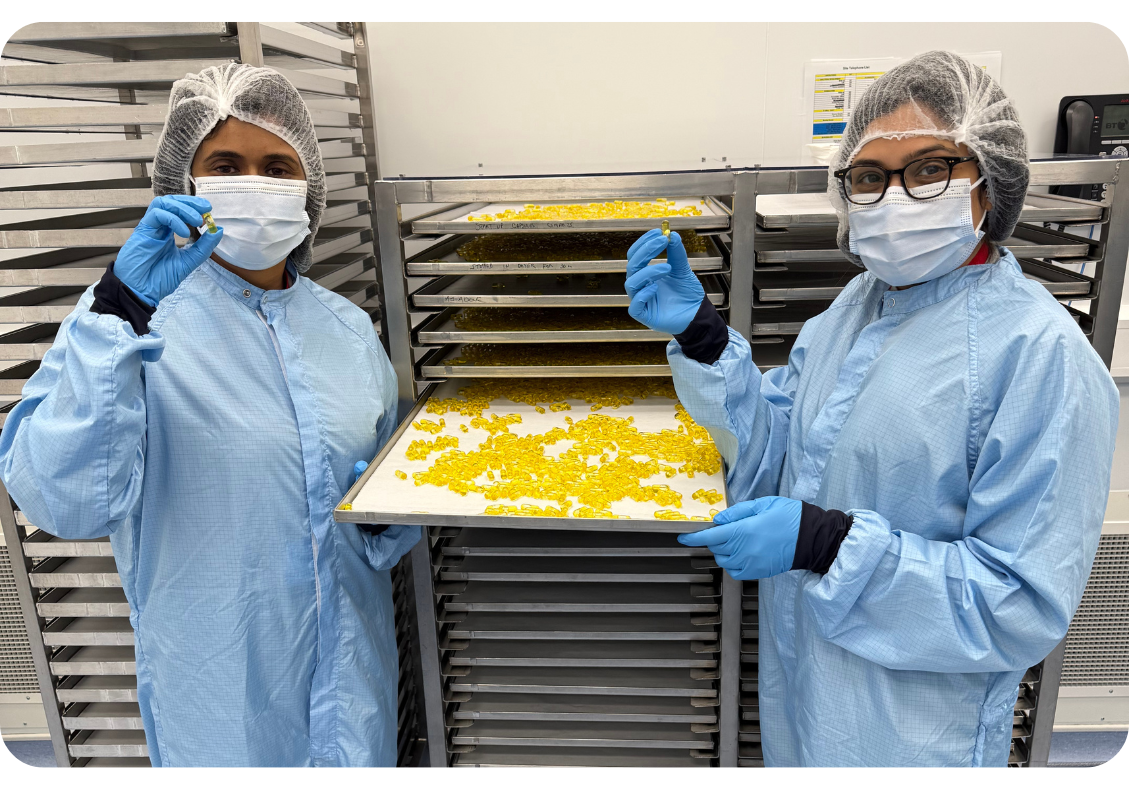
The Science of Appetite Control
The Gut: Your Hidden Appetite Regulator
Your Gut Controls Your Appetite
When we eat the right foods, our gut doesn't just absorb nutrients, it senses them. The right combination of nutrients can activate L-cells, a type of enteroendocrine cell found mainly in the colon.
L-Cells Release Gut Hormones
When these L-cells are stimulated, they release PYY and GLP-1. These are sometimes called "fullness hormones" because they signal to your brain that you're satisfied.
But that's not all they do....
GLP-1 and PYY also slow down how quickly food moves through your digestive system, leaving you feeling fuller for longer. This is the foundation of Elcella's mechanism.
Our Research
The cutting-edge science behind our approach is supported by peer-reviewed studies, published in top international research journals.
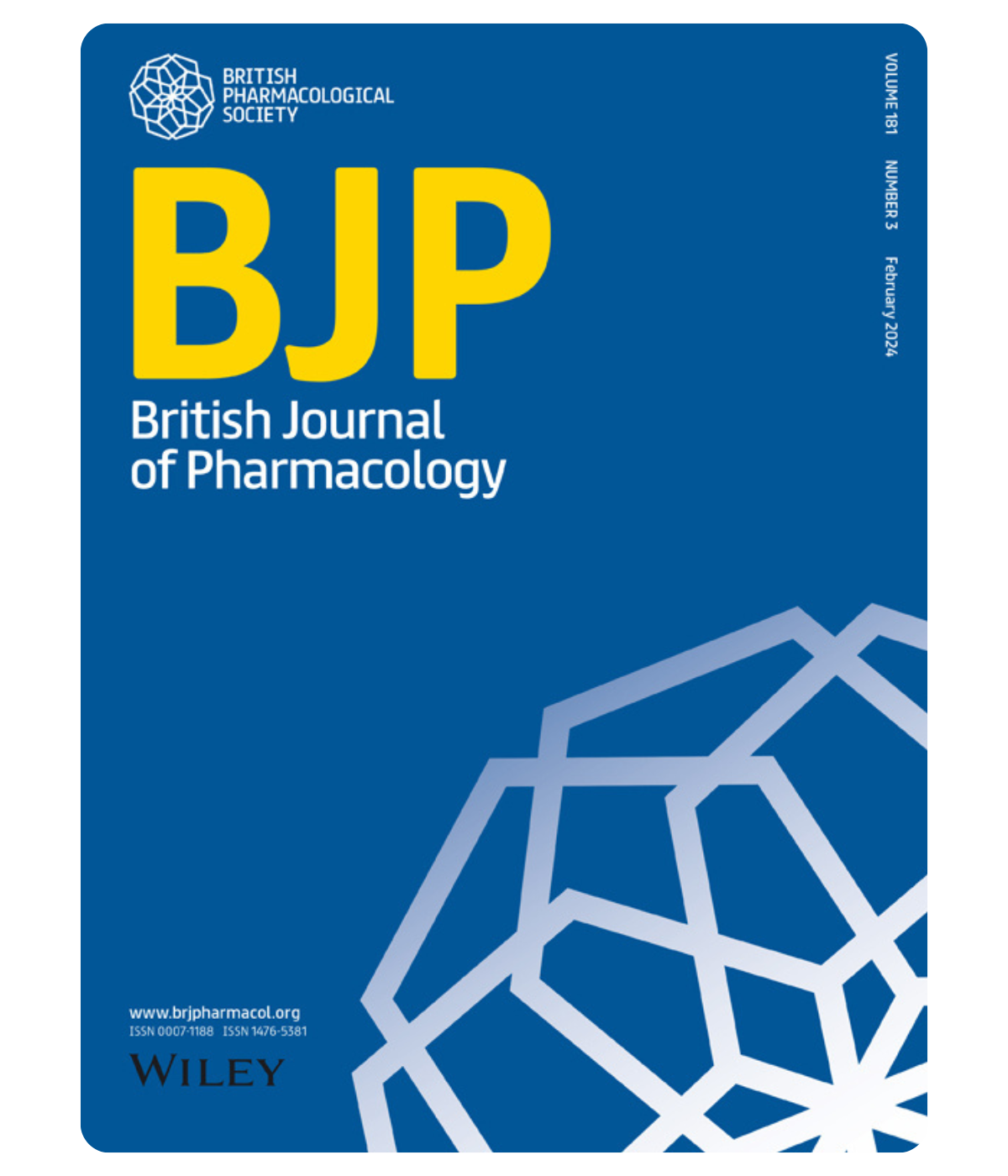
British Journal of Pharmacology, 2024
GPR84 In Physiology - Many functions in many tissues
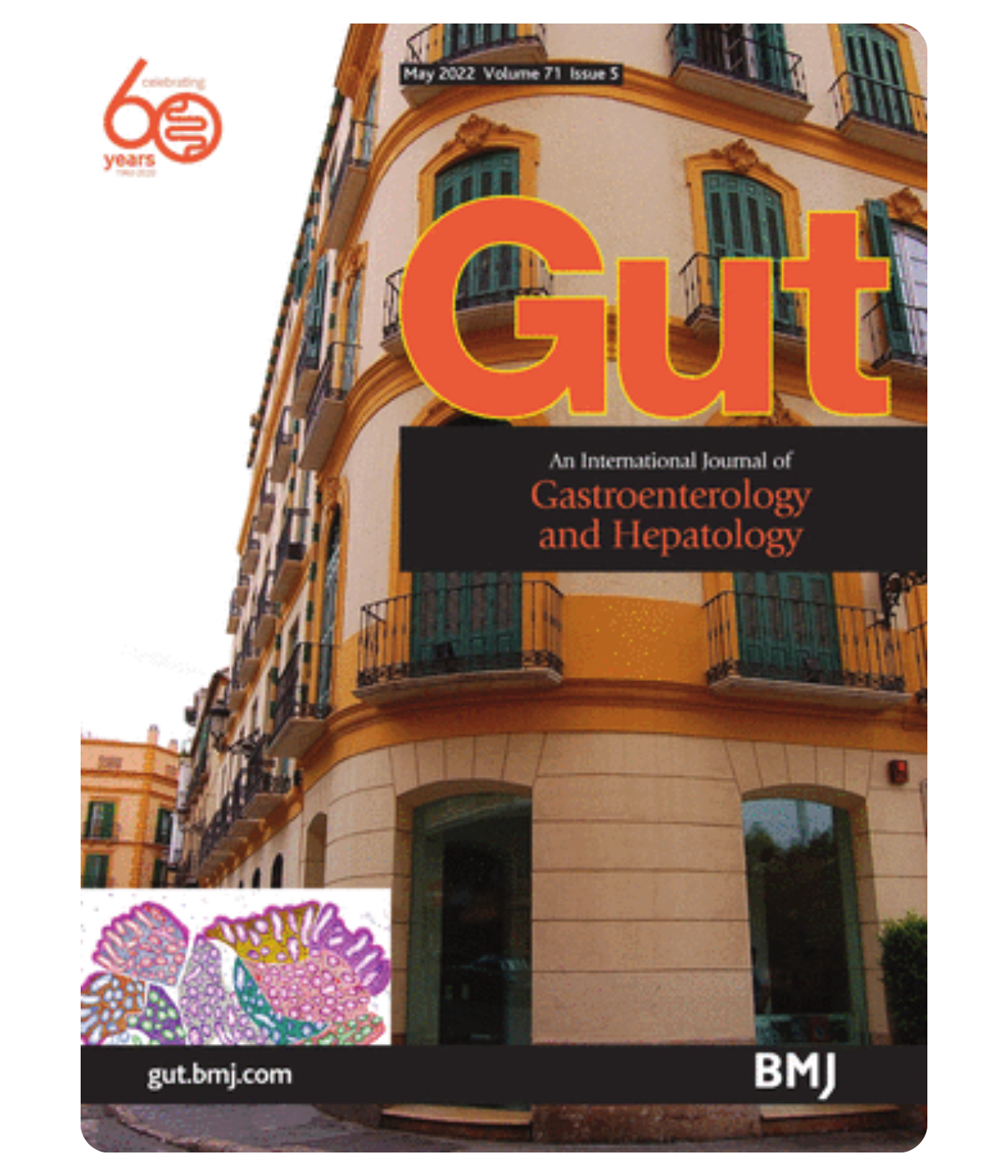
Gut, 2022
Decoy bypass for appetite suppression in obese adults: role of synergistic nutrient sensing receptors GPR84 and FFAR4 on colonic endocrine cells
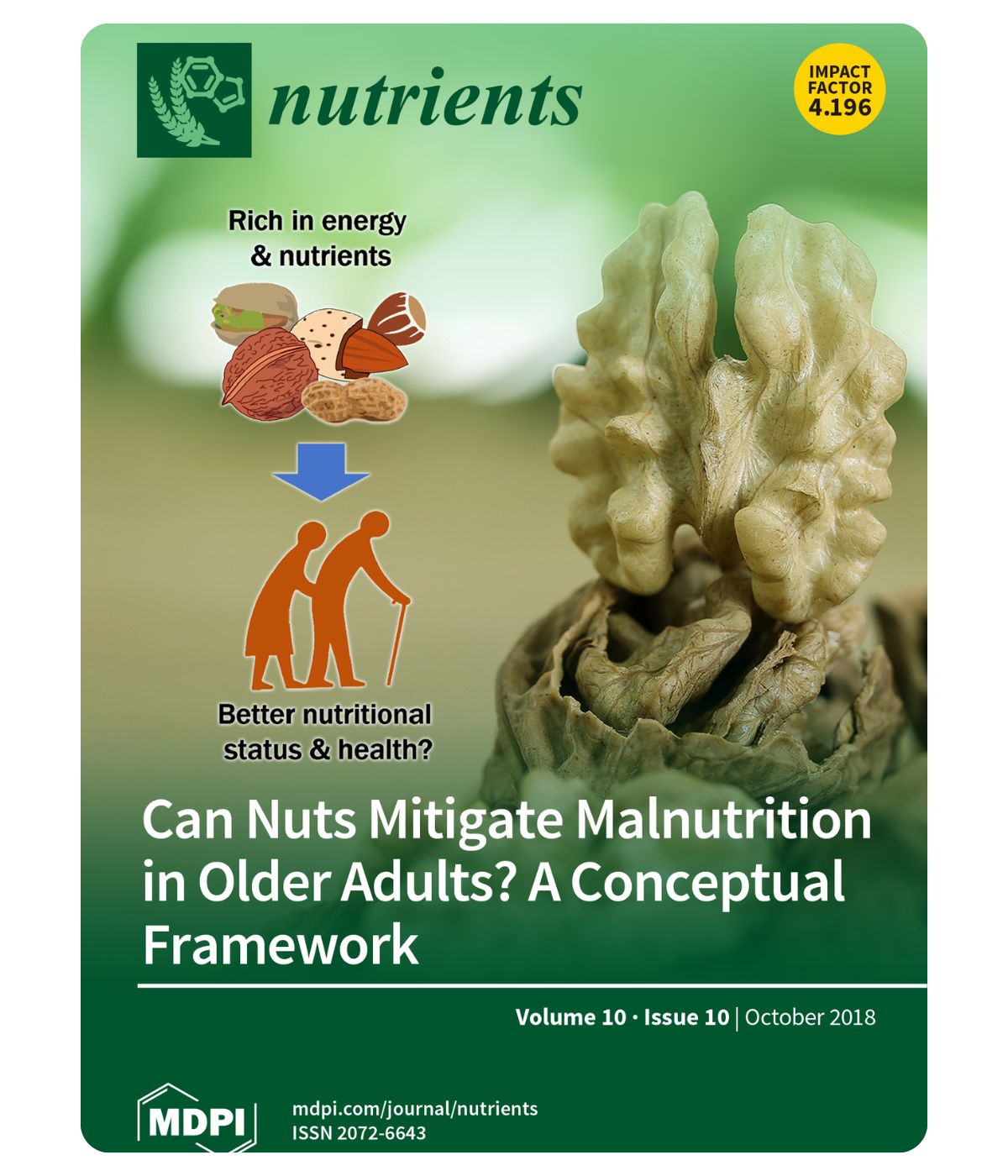
Nutrients, 2018
Effect of Obesity on the Expression of Nutrient Receptors and Satiety Hormones in the Human Colon

British Journal of Pharmacology, 2012
Peripheral neural targets in obesity

Founder & Chief Executive Officer
Dr. Madusha Peiris, PhD
Dr. Madusha Peiris completed her PhD at the University of Queensland, Australia. Her passion for understanding the gut-brain connection and the important role of nutrients in appetite regulation led to groundbreaking research. Dr. Madusha's dedication to her work was instrumental in the discovery that laid the foundation for Elcella’s natural approach to appetite control and digestive well-being.

Co-Founder & Chief Operating Officer
Dr. Ruby Aktar, PhD
Dr. Ruby Aktar completed her undergraduate studies at Queen Mary University of London, followed by a PhD in enteric neuroscience. Her research explores how gut microbes affect gut physiology, and how nutrients affect appetite regulation. Dr. Ruby is passionate about learning how to make natural supplements (like Elcella!), that manage appetite and improve overall well-being.


